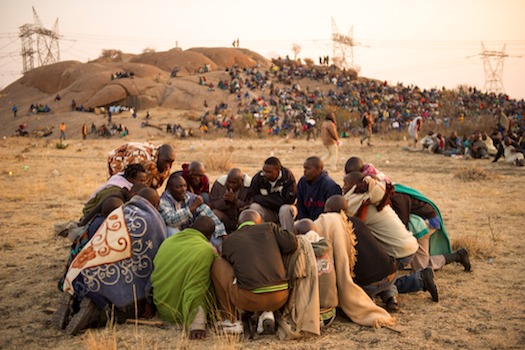- About
- Topics
- Picks
- Audio
- Story
- In-Depth
- Opinion
- News
- Donate
- Signup for our newsletterOur Editors' Best Picks.Send
Read, Debate: Engage.
| April 06, 2016 | |
|---|---|
| topic: | Transparency and Corruption |
| tags: | #ANC, #corruption, #Jacob Zuma, #Nelson Mandela, #South Africa, #TTransparency International |
| located: | South Africa |
| by: | Shasha Seakamela |
South Africa’s democracy is now over twenty years old, but the euphoria that followed Nelson Mandela’s inauguration as the first black president and particularly the end of apartheid is now starting to ebb.
Today the country is counting both the gains and failures of the democratic era. Corruption allegations linking President Jacob Zuma to one of South Africa’s prominent business families (the Guptas) are evolving into an unprecedented crisis inside the ruling African National Congress over how to maintain its political control and legitimacy in the post-apartheid era.
Recently the Transparency International’s Corruption Perception Index listed South Africa as 67th in a list of countries ranked from 1 – being least corrupt – to 174, being most corrupt. South Africa’s corruption has worsened since 2009, when the index placed the country at 55 on the world list, and certainly since 2000 when it was ranked 34th.
Zuma, 73, who spent time in prison with Nelson Mandela and has a long history of deflecting personal and political scandals, became president in 2009 and was elected to a second five-year term in 2014.
Speaking at the previous Jozi Book Fair, Karabo Rajuili, advocacy co-ordinator at amaBhungane said, “freedom of information acted as a strong deterrent against corruption and the promotion of access to information Act was a key piece of legislation when it comes to fighting corruption. The Act is also useful to access info when it came to the shareholding of particular companies.”
According to the Institute of Justice and Reconciliation barometer many South Africans believe that corruption in the public sector is getting worse. The country has in the past few years been sullied by mismanagement and high-level corruption blamed largely on the ANC-led government. Despite the Nkandla pending corruption, some believe it is too easy to blame it on the president. Jacob Zuma should not solely be accountable for all corruption in the public sector. However one cannot deny the fact that the president certainly stymied any progress that could have been made in this regard. Before his first term as a president, Jacob Zuma was charged with 783 counts of racketeering, fraud and corruption, for receiving payments related to the arms deal through Schabir Shaik (his longtime friend during exile years).
In addition to his own shady dealings recently his involvement with the Guptas and the upgrading of his Nkandla residence through a significant amount of government tax money has further tarnished his public image. He has also repeatedly appointed and shuffled ministers of low ethical standards to key positions in cabinet and the criminal justice system.
Three Gupta brothers run a business empire that spans mining, media and aviation. They are very close with Zuma, and have partnered in several ventures with his son and employed a daughter and one of his wives.
With regard to Nkandla, the Constitutional Court will hand down judgment in the matter on 31 March at 10h00. The application submitted by the Economic Freedom Fighters (EFF) and Democratic Alliance (DA) is to enforce the public protector’s findings in the Nkandla report. After her investigation on the expenditure at Nkandla The public protector Thuli Madonsela had made recommendation that the president need to pay back some of the money used. The EFF wants the Constitutional Court to find that Zuma failed to implement the directions in breach of his oath of office and his constitutional duties. According to the two political parties, Zuma ignored the Public Protector's findings that he pay back a portion of the money spent on security upgrades to his Nkandla home.
The country is in danger of becoming a "mafia state where all that the state will be doing is to nurse interests of family businesses," Gwede Mantashe, the ANC secretary-general, told reporters late last week.
South Africa’s anticorruption policy is one of the best in the world, the only problem with it is that it is not enforced, says David Lewis, executive director of nonprofit organisation. Ultimately, “if there are no substantial risks for engaging in corruption, this is a very difficult battle to fight.”
But despite anger over graft and glaring socio-economic disparities, the African National Congress can be expected to retain power after every election. The party remains the symbol of liberation, while the official opposition DA is still seen by some black South Africans as a white party despite making inroads among them (blacks).
In their election manifesto, the ANC listed fighting corruption as one of their top five priorities that the party keeps selling year after year to the voters.
By copying the embed code below, you agree to adhere to our republishing guidelines.
